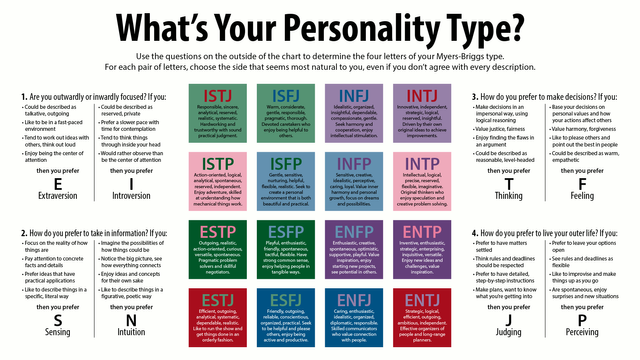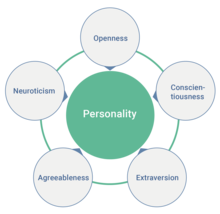Personality Tests: BuzzFeed or Big 5?
Personality Tests: BuzzFeed or Big 5?
Personality Psychology

image
What is Personality Psychology?
Personality Psychology
As personality psychology aims to do, it clarifies the reason for some behaviors and gives us a certain vantage point with which to interpret behavior. Many studies can be found correlating certain personality traits with well-being, risk-taking, addiction, etc. All one has to do is look and droves of these examples can present themselves. It is important to understand the historical progression of personality tests in order to explain why we have landed on the current tests we use today.
A Historical Perspective of Personality Psychology
Although not the first personality psychologist, refinement to the field didn’t come until Carl Gustav Jung published a book on personalities and suggested that personality works along a spectrum of different factors. First is the attitude, which he defined as being extroverted or introverted. The introvert is more attuned to their inner world, while an extrovert would show the opposite. Most people fall somewhere in the middle 66% portion of the continuum, and the measure is exactly that: a continuum.
Jung also defined functions of the personality. The first two functions are that of thinking and feeling. It would be easy to describe these dependent on one another – either you’re all feel, or all think. However, it becomes clear that these two functions serve as poles along a single continuum.
Alongside this continuum is that of sensation and intuition. These terms don’t lend themselves to definition very easily, so we will define them as sensation being the degree to which you know something exists and intuition would be similar to faith – the degree to which one does not have physical evidence of something and believes it to be true.
Thus, we have a matrix of possible personality types according to Jung. Your personal position in the matrix can be found by taking a Meyers-Briggs test. If you’re curious, check it out! It’s certainly interesting.
Modern Personality Pscyhology
These days, the psychological test used to define personality has evolved. The lexical hypothesis – a thesis that uses language to estimate how important or ubiquitous a trait or state is to any given culture – was advanced to bring about the Big 5, or the most common personality traits. Testing of this hypothesis in terms of personality yielded interesting results and the constructs with which personality psychologists work today. These are openness, conscientiousness, extraversion, agreeableness, and neuroticism. As you may gather, these terms also lend themselves to definition by continuum. One can be extraverted or introverted, agreeable or disagreeable, and so on.
Agreeableness can be defined as warm and friendly. People high in agreeableness may aim to get along with others well, and may even make sacrifices to ensure that this happens.
Conscientiousness can be defined as being careful or vigilant. Those that are conscientious oftentimes find themselves doing well in school and ensuring they do not shirk their responsibilities.
Extraversion can be defined as outgoing and talkative. The people who like to be the center of attention at parties? Those are your extroverts.
Openness can be defined as appreciative of art, emotion, and curiosity. These people are the ones you might see bungee-jumping or even trying out a new drug that they never have before.
Neuroticism can be defined as being rather susceptible to psychological stress. These people may or may not have diagnoses of disorders.
Through the lexical hypothesis, a method used for other psychological constructs as well, the Big 5 have been used to test personality. There are tests that one can take such as the NEO-Big 5 Inventory. If you’re interested where you can fall along these spectrums, it is another thing worth investigating.
Where do you fall on these spectrums? Take both tests with a simple google search and find out more about yourself. Leave an upvote and a comment to see how similar your personality is to those of other Steemians!!


Congratulations @aceaeterna! You have completed some achievement on Steemit and have been rewarded with new badge(s) :
Click on any badge to view your own Board of Honor on SteemitBoard.
To support your work, I also upvoted your post!
For more information about SteemitBoard, click here
If you no longer want to receive notifications, reply to this comment with the word
STOPThis post has received a 48.67% upvote from @msp-bidbot thanks to: @aceaeterna. Delegate SP to this public bot and get paid daily: 50SP, 100SP, 250SP, 500SP, 1000SP, 5000SP Don't delegate so much that you have less than 50SP left on your account.
I love these tests and they give me a lot of useful information and good information about my strengths. However, often after this I need to study a lot of information on psychology and some terms in order to understand the topic better. For example, the last article was about example of openness personality